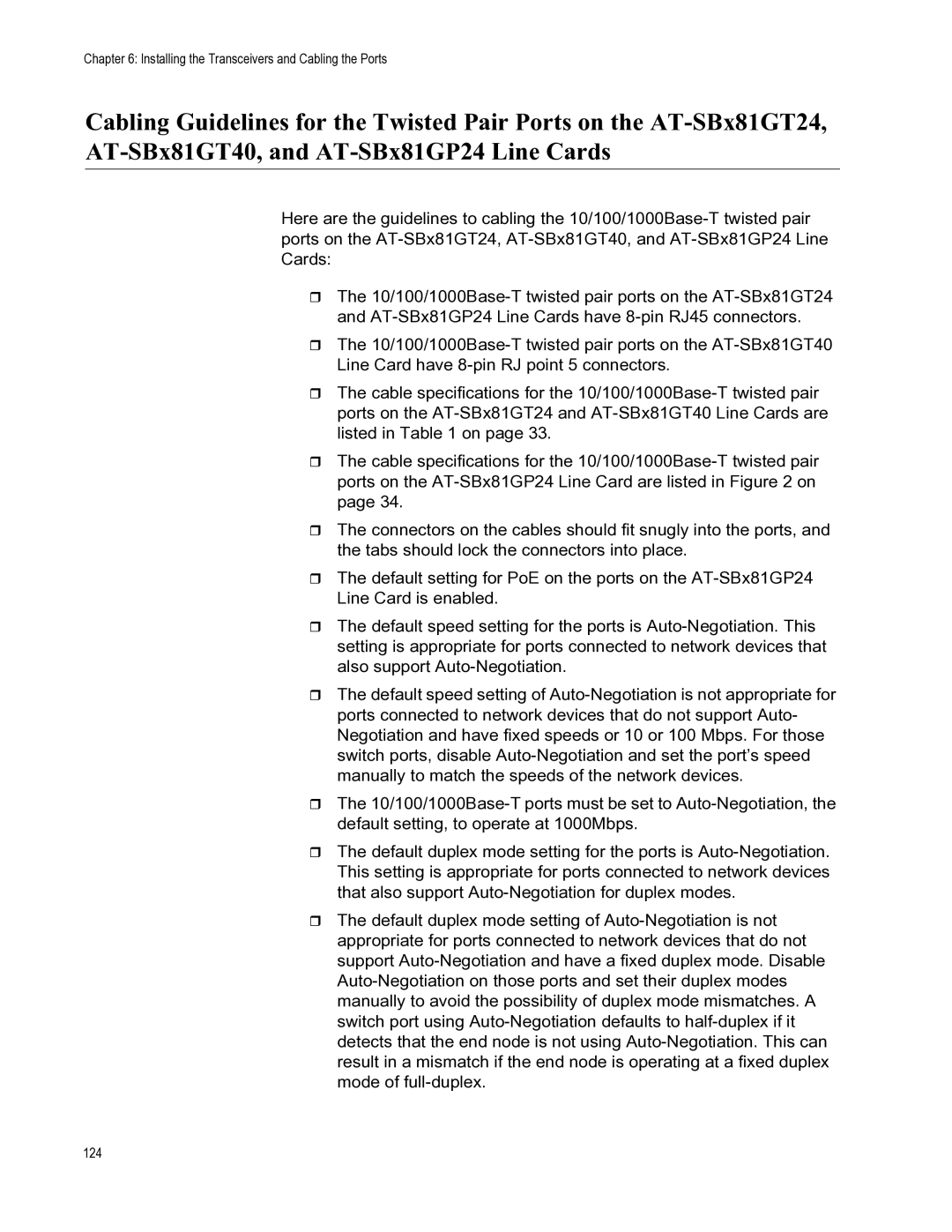Chapter 6: Installing the Transceivers and Cabling the Ports
Cabling Guidelines for the Twisted Pair Ports on the AT-SBx81GT24, AT-SBx81GT40, and AT-SBx81GP24 Line Cards
Here are the guidelines to cabling the 10/100/1000Base-T twisted pair ports on the AT-SBx81GT24, AT-SBx81GT40, and AT-SBx81GP24 Line Cards:
The 10/100/1000Base-T twisted pair ports on the AT-SBx81GT24 and AT-SBx81GP24 Line Cards have 8-pin RJ45 connectors.
The 10/100/1000Base-T twisted pair ports on the AT-SBx81GT40 Line Card have 8-pin RJ point 5 connectors.
The cable specifications for the 10/100/1000Base-T twisted pair ports on the AT-SBx81GT24 and AT-SBx81GT40 Line Cards are listed in Table 1 on page 33.
The cable specifications for the 10/100/1000Base-T twisted pair ports on the AT-SBx81GP24 Line Card are listed in Figure 2 on page 34.
The connectors on the cables should fit snugly into the ports, and the tabs should lock the connectors into place.
The default setting for PoE on the ports on the AT-SBx81GP24 Line Card is enabled.
The default speed setting for the ports is Auto-Negotiation. This setting is appropriate for ports connected to network devices that also support Auto-Negotiation.
The default speed setting of Auto-Negotiation is not appropriate for ports connected to network devices that do not support Auto- Negotiation and have fixed speeds or 10 or 100 Mbps. For those switch ports, disable Auto-Negotiation and set the port’s speed manually to match the speeds of the network devices.
The 10/100/1000Base-T ports must be set to Auto-Negotiation, the default setting, to operate at 1000Mbps.
The default duplex mode setting for the ports is Auto-Negotiation. This setting is appropriate for ports connected to network devices that also support Auto-Negotiation for duplex modes.
The default duplex mode setting of Auto-Negotiation is not appropriate for ports connected to network devices that do not support Auto-Negotiation and have a fixed duplex mode. Disable Auto-Negotiation on those ports and set their duplex modes manually to avoid the possibility of duplex mode mismatches. A switch port using Auto-Negotiation defaults to half-duplex if it detects that the end node is not using Auto-Negotiation. This can result in a mismatch if the end node is operating at a fixed duplex mode of full-duplex.
